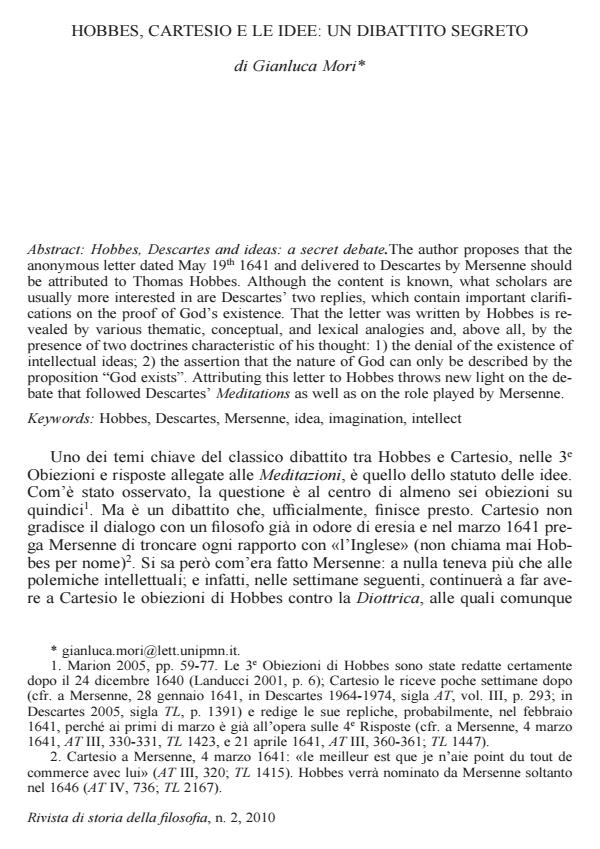Hobbes, Cartesio e le idee: un dibattito segreto
Titolo Rivista RIVISTA DI STORIA DELLA FILOSOFIA
Autori/Curatori Gianluca Mori
Anno di pubblicazione 2010 Fascicolo 2010/2
Lingua Italiano Numero pagine 18 P. 229-246 Dimensione file 467 KB
DOI 10.3280/SF2010-002002
Il DOI è il codice a barre della proprietà intellettuale: per saperne di più
clicca qui
Qui sotto puoi vedere in anteprima la prima pagina di questo articolo.
Se questo articolo ti interessa, lo puoi acquistare (e scaricare in formato pdf) seguendo le facili indicazioni per acquistare il download credit. Acquista Download Credits per scaricare questo Articolo in formato PDF

FrancoAngeli è membro della Publishers International Linking Association, Inc (PILA)associazione indipendente e non profit per facilitare (attraverso i servizi tecnologici implementati da CrossRef.org) l’accesso degli studiosi ai contenuti digitali nelle pubblicazioni professionali e scientifiche
The author proposes that the anonymous letter dated May 19th 1641 and delivered to Descartes by Mersenne should be attributed to Thomas Hobbes. Although the content is known, what scholars are usually more interested in are Descartes’ two replies, which contain important clarifications on the proof of God’s existence. That the letter was written by Hobbes is revealed by various thematic, conceptual, and lexical analogies and, above all, by the presence of two doctrines characteristic of his thought: 1) the denial of the existence of intellectual ideas; 2) the assertion that the nature of God can only be described by the proposition "God exists". Attributing this letter to Hobbes throws new light on the debate that followed Descartes’ Meditations as well as on the role played by Mersenne.
Parole chiave:Hobbes, Descartes, Mersenne, idea, imagination, intellect
Gianluca Mori, Hobbes, Cartesio e le idee: un dibattito segreto in "RIVISTA DI STORIA DELLA FILOSOFIA" 2/2010, pp 229-246, DOI: 10.3280/SF2010-002002